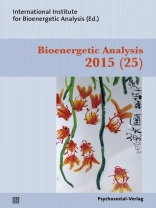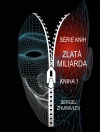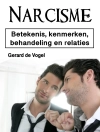Bioenergetic Analysis, the Clinical journal of the IIBA is published annually and is distributed to all members of the international organization. Its purpose is to further elaborate theoretical and scientific concepts and to make links to enhance communication and broaden our connection with other schools of therapy, as well as with academic psychology, medicine, and other psychosomatic schools of thought. The journal publishes reports on empirical research, theoretical papers, and case studies. Some local IIBA societies produce journals in their native languages. This journal has been published in English since 1985, making it the oldest journal for the IIBA.
The current edition contains five original papers of interest to therapists. Christoph Helferich continues the dialogue about the place of modern Body psychotherapy in today’s global village. Garet Bedrosian compares couples therapy from Bioenergetics as well as Imago Relationship Theory (IRT) and Emotionally Focused Therapy (EFT). Giuseppe Cardezza explores the dynamics of shame particularly during body oriented therapeutic interventions. Vita Heinrich-Clauer provides an argument for and Bioenergetic techniques for use in self-care of the therapist. Finally, Wera Fauser provides research and rich clinical material on the impact and importance of pre-natal and peri-natal trauma on the individual in psychotherapy. As this is the 30th year and 25th edition, there is an essay of writings tracing the journey of this journal, written by past and recent editors.
Daftar Isi
Contents
Letter from the Editor
Inside the Backroom
The Clinical Journal of Bioenergetic Analysis
5 Chief Editors Speak out – The 30 Year Perspective 1984–2014
Body and Body Psychotherapy in the Global Village
Christoph Helferich
Bioenergetic Self-Care for Therapists
Between Openness and Boundary Setting
Vita Heinrich-Clauer
The “Energetics” of Couples Therapy
Garet Bedrosian
The Importance of Integrating Pre- and Perinatal Issues into Bioenergetic Analysis
Wera Fauser
Feeling Ridiculous and the Emotion of Shame in Physical Experiences During Analysis
Giuseppe Carzedda












